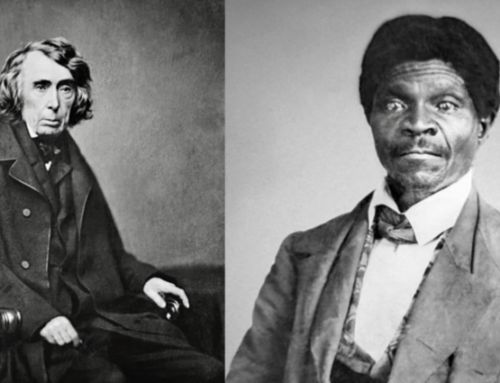 For those of us with (just the hint of) a sadistic turn, the square-wheeled rollout of Obamacare—or, as the White House suddenly prefers, “the Affordable Care Act”—is nothing short of schadenfreudetastic.
For those of us with (just the hint of) a sadistic turn, the square-wheeled rollout of Obamacare—or, as the White House suddenly prefers, “the Affordable Care Act”—is nothing short of schadenfreudetastic.
The administration long ago gave up on “glitch,” a term that never approached capturing the problems with the launch of President Obama’s signature legislative “achievement.” Politico recently reported that Obamacare has replaced New Coke and the BP oil spill as the go-to case study among crisis management consultants about what not to do in the event of a public-relations disaster.
Nor are the nightmares over. The White House’s emergency “fixes,” the continued fragility of www.Healthcare.gov, the president’s upside-down poll numbers, and the looming “death spiral”, should not enough spry youngsters sign up to cover the aged and sick, indicate political, economic, and legal challenges ahead.
But the potential meltdown of Obamacare—whether it happens next month or next year—will not be the result of inefficient website design, unhelpful call-center operators, or even unconscionably high premiums. It will be the result of the liberal mode of governing.
In September 1945 economist F.A. Hayek, then a professor at the London School of Economics, published in The American Economic Review a short essay unremarkably titled, “The Use of Knowledge in Society.” Its twelve pages are full of that rarest of scholarly qualities: common sense. Hayek observes something everyone knows—everyone, that is, except the liberal economic planner: human knowledge exists “solely as the dispersed bits of incomplete and frequently contradictory knowledge which all the separate individuals possess.” The delusion of the planner—whether he is trying to construct a nationalized healthcare system or a Marxist utopia—is that all knowledge can be known by a single, central body, which can then design the economy accordingly. But, of course, economic knowledge is circumstantial and, because of that, not quantifiable. How much milk a person needs is a matter of their unique time and place. It is, says Hayek, “knowledge of the kind which by its nature cannot enter into statistics and therefore cannot be conveyed to any central authority in statistical form.” “The ultimate decisions,” he concludes, “must be left to the people who are familiar with these circumstances, who know directly of the relevant changes and of the resources immediately available to meet them.”
Obamacare, of course, is a scheme predicated on just the delusion Hayek is exposing. It is the reductio ad absurdum of liberalism’s technocratic impulse.
Not that “planning,” understood broadly, is a bad thing. “ ‘Planning,’ ” Hayek observed in his landmark book, The Road to Serfdom, “owes its popularity largely to the fact that everybody desires, of course, that we should handle our common problems as rationally as possible.” Work smarter, not harder. But “rationality,” as commandeered by modern liberalism, is something more than the application of wisdom and foresight, to use Hayek’s language, to our besetting challenges. In his 1945 essay, Hayek suggests that there has occurred in our age “an erroneous transfer to social phenomena of the habits of thought we have developed in dealing with the phenomena of nature.” Those habits of thought favor mathematics—numbers, statistics, precise quantities communicable as eternal and unchanging laws. The sweeping progress of the hard sciences helped to apotheosize a Reason that was naught but cool calculation—the process dispassionate and transparent, the output as sure as gravity. Influenced by a host of woolly-headed philosophers and their systems, modern liberalism thought to apply those same processes to new areas (the same sort of misappropriation that gave us “Social Darwinism”). The result has been multiple generations of policymakers (on both sides of the Atlantic) who believe that nationalized healthcare is the inevitable result of a sure application of Cartesian logic. Promoting the Affordable Care Act—or this or that liberal program—is just the “rational” thing to do. Conservatives who oppose it are “irrational.”
New York Times columnist Paul Krugman said as much in his September op-ed, “The Wonk Gap”: “Modern conservatism has become a sort of cult, very much given to conspiracy theorizing when confronted with inconvenient facts.” The corollary is obvious: liberals operate strictly according to the facts. They are not interested in partisan ambitions, in overarching goals; they weigh the evidence and act accordingly. They are the “reality-based community.”
The power of Hayek’s essay was, of course, to point out that some “facts” lie beyond the reach of the methods of the hard sciences. There is no way to account for every factor that enters into even the simplest decision; there is knowledge that escapes exact formulation—knowledge which, when crafting policy, is often the most important. The prudent response is to leave the decision to the one who knows the particulars: the individual or the community. But liberals believe the state really can “know it all.” Hence the hubris of the liberal project.
The same hubris is at work in communism, socialism, and fascism, each of which believes human nature to be infinitely malleable and, in the end—with enough government programs, social justice organizations, and Peace Corps volunteers—perfectible. The result is, in some degree, what philosopher Michael Oakeshott called “teleocratic” government—government as an anointed body tasked with bringing about some end: social or economic justice, affordable healthcare for all, whatever. Teleocratic governments, as Hayek argues, can never know enough to achieve their ends, but that only presents an obstacle to governments graced with self-discipline. For those without, if the ends are sufficiently desirable, few tears are shed over the means, whether they consist of a questionably legal executive order or a gulag.
Hayek observed liberalism’s predilection for teleocratic government in The Road to Serfdom:
The common features of all collectivist systems may be described, in a phrase ever dear to socialists of all schools, as the deliberate organization of the labors of society for a definite goal. That our present society lacks such “conscious” direction toward a single aim, that its activities are guided by the whims and fancies of irresponsible individuals, has always been one of the main complaints of its socialist critics.
Universal healthcare is liberalism’s most recent “definite goal,” its apparatus a “deliberate organization of the labors of society.” But like others, this goal is, as Hayek knew, only liberalism’s latest exercise in accumulating power. Slippery slope arguments can be suspect, but Hayek observed that there is a clear line connecting the belief that some people can know all the salient data to the (“obvious,” “rational”) conclusion that those people should be in charge, and everyone else ought to submit. Every “single aim” is an attempt to bring everything under the purview of those select few who “know what is best.” It is the modern iteration of Mussolini’s famous pronouncement, “Everything in the State, nothing outside the State.” Among the most worrisome risks of invasive planning is that democracy will “at best be reduced to choosing the persons who are to have practically absolute power.”
There is no quite comparable action in American history to the current administration’s power grab—one-sixth of the American economy—though the ethos is familiar from other “transformative” plots forwarded past liberal executives. Woodrow Wilson was among America’s most zealous practitioners of dispassionate “reason”: “Government,” he wrote in The State, “does now whatever experience permits or the times demand.” Government, liberals today might say, “does what works.” What worked for Wilson was to demand that the citizen “marry his interests to the state,” then jail those who refused.
Franklin Delano Roosevelt enforced militarily the provisions of his National Industrial Recovery Act and Agricultural Adjustment Act, both colossal failures (the latter left many thousands hungrier than ever before). But for Roosevelt, such spectacular “conscious” organization was justified in the interest of satisfying the “second Bill of Rights” articulated in his 1944 “State of the Union”: “The right…to a useful and remunerative job…to a decent home…to adequate medical care…to a good education.”
Lyndon Johnson’s War on Poverty, for all its good intentions, morphed into a collection of bank-breaking government welfare programs that for fifty years have facilitated crime, family breakdown, and the loss of a sense of personal responsibility. In his stunning chronicle of the effects of the War on Poverty in eastern Kentucky, Lexington Herald-Leader writer John Cheves quotes a 51-year-old woman from Martin County: “A lot of people here have just given up.”
There are “teachable moments” galore in each of the above, though the current administration is not likely to learn from any of them. Meanwhile, Obamacare exists in the line of these other Grand Causes—and, what is more, it is an escalation, involved in the minutiae of the average citizen’s daily life in an unprecedented way. Hayek is emphatic about the consequences of submitting to such a scheme: the surrender of economic control is only a precursor to the surrender of every form of control, an eventual subordination of all of our ends to the ends prescribed by the Powers That Be.
But if that’s what it takes to get universal healthcare, well, hey—let’s just call that a glitch.
Book on the topic of this essay may be found in The Imaginative Conservative Bookstore.







Leave A Comment